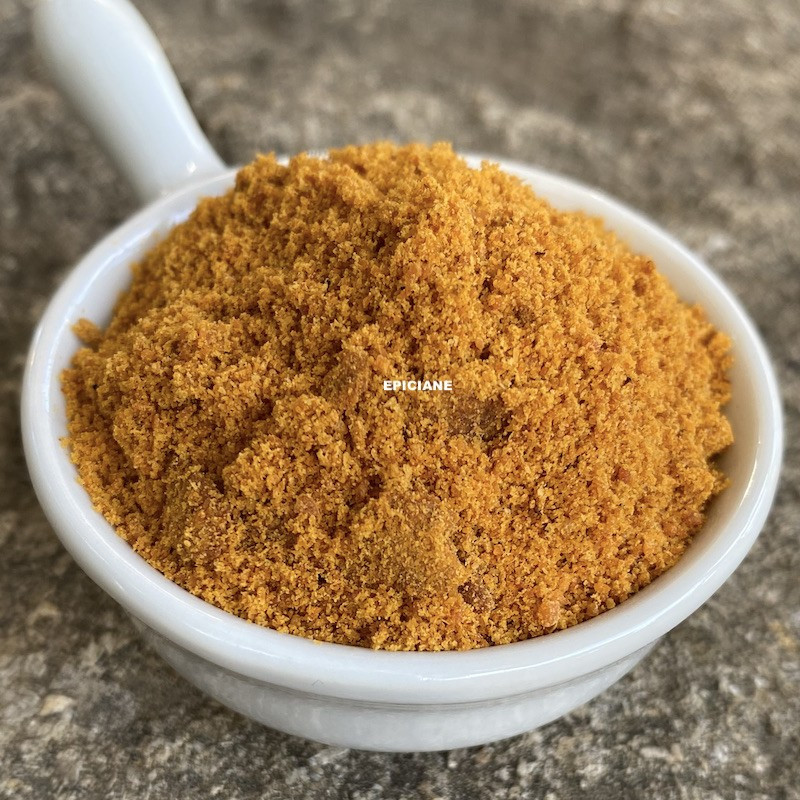
Reference: 1N6987004


Its aroma naturally evokes nutmeg due to their close relation, but it is much more refined.
You can use it in the same types of preparations as nutmeg: meats, gratins, purees, and béchamel sauces.
 Delivery
Delivery
Mondial Relay
 Returns
Returns
See conditions
 Payments
Payments
100% secure
Livré en sachet refermable
Uses in Cooking and Beyond:
Mace is a rare spice with a flavor much finer than nutmeg, which is why it is highly prized by gourmets.
In cooking, like nutmeg, it complements both savory and sweet dishes. You can easily use it in place of nutmeg to add extraordinary finesse to meats, sauces, purees, béchamel, stuffing, gratin dauphinois, quiche lorraine, and charcuterie. Additionally, mace is delightful with delicate fish such as pike-perch, cooked fruits like pears, vegetable soups, and even chocolate.
Whole mace is fragile to the touch, resembling candle shavings, and can easily be crushed between your fingers. While ground mace is ideal for cooked dishes, whole mace is preferred in liquids (like cocktails, spirits such as hippocras, chai tea blends, etc.) to avoid the need for straining. It also adds a beautiful aesthetic!
Its medicinal properties, somewhat forgotten today, are similar to those of nutmeg.
Who am I?
Origin: Indonesia
Scientific name: Myristica fragrans
Common name: Nutmeg flower
The charming nickname "nutmeg flower" highlights the beauty and delicacy of mace! Mace is actually the thick outer covering that initially surrounds the nutmeg. When fresh, it has a vibrant red color, turning dark orange as it dries.
To better understand the fruit of the nutmeg tree, imagine the walnut. The tree produces a large husk about the size of an apricot, which is inedible. Inside, a bright red skin—mace—partially covers a hard shell, which must be cracked open to reveal the nutmeg we know and consume.
A Bit of History:
Originally, nutmeg trees grew only on Banda Island in the Moluccas Archipelago of Indonesia. In the 15th century, the Portuguese attempted to dominate the spice trade, but it was the Dutch, through the "Dutch East India Company," who eventually drove the Portuguese out of the Moluccas, establishing a monopoly on nutmeg and tragically committing massacres of the native population.
Later, nutmeg trees were exported to the Caribbean and Grenada, where they successfully adapted.
Data sheet
Reference: 1N6987004
Reference: 208033101
Reference: 208033101
Reference: 124510
Reference: 208037910
Reference: 20815801
Reference: 30803202
Reference: 20820902
Reference: 10N7738802
Reference: fenouilE
Reference: 00723801
Reference: Harissa
Reference: 3N7153402
Reference: 00036306-0001
Reference: 6L5609803
Reference: coriandreE
Reference: EPI2301003
Reference: badianeM

Its aroma naturally evokes nutmeg due to their close relation, but it is much more refined.
You can use it in the same types of preparations as nutmeg: meats, gratins, purees, and béchamel sauces.